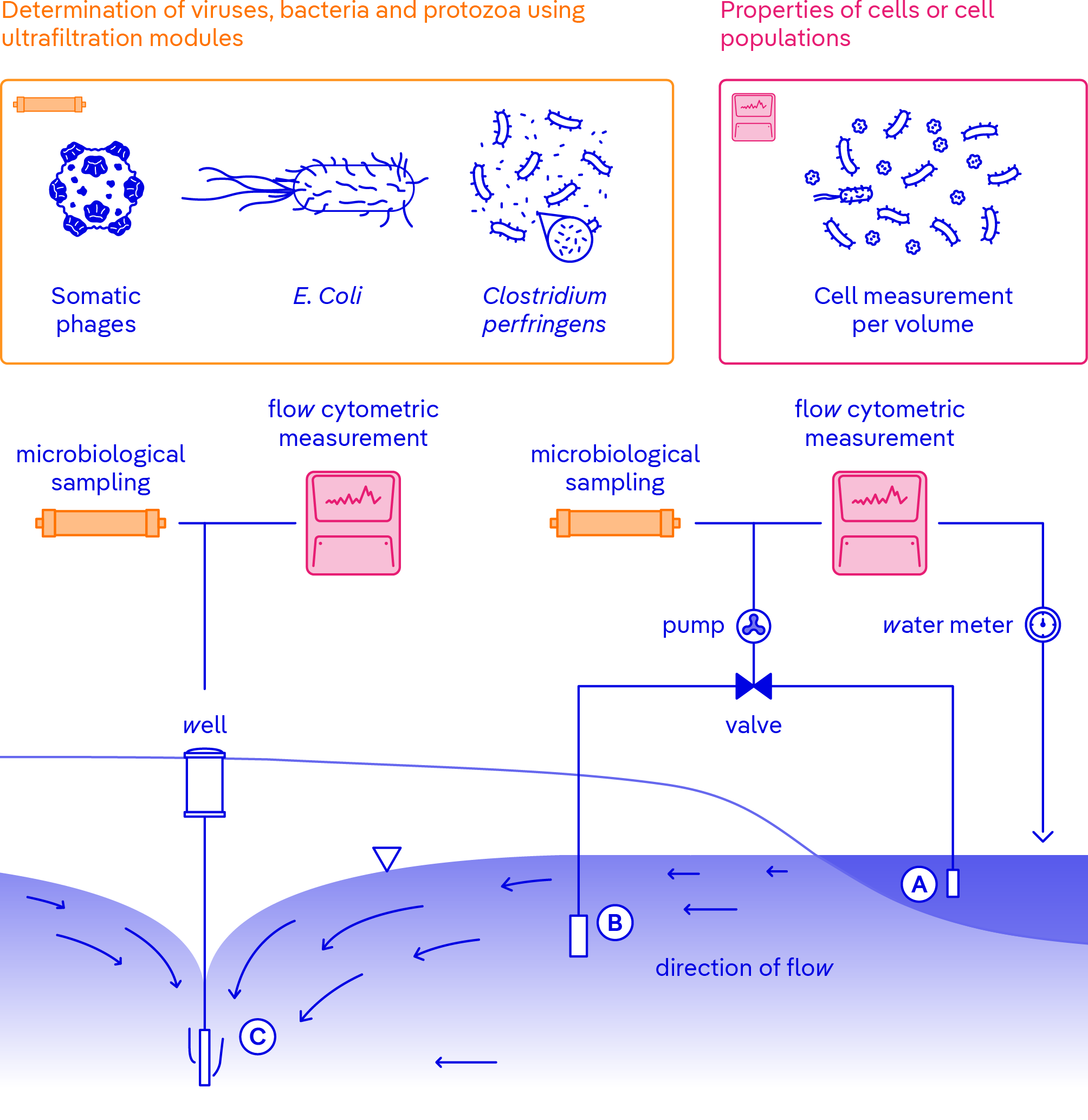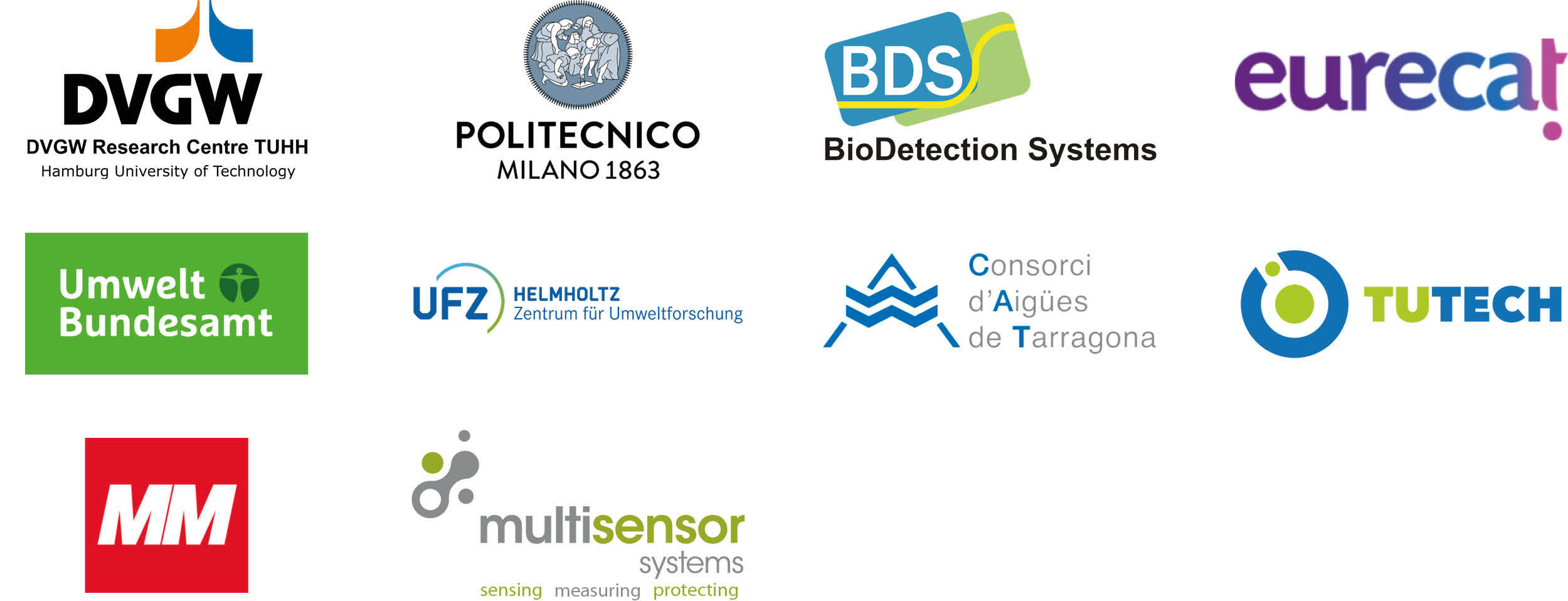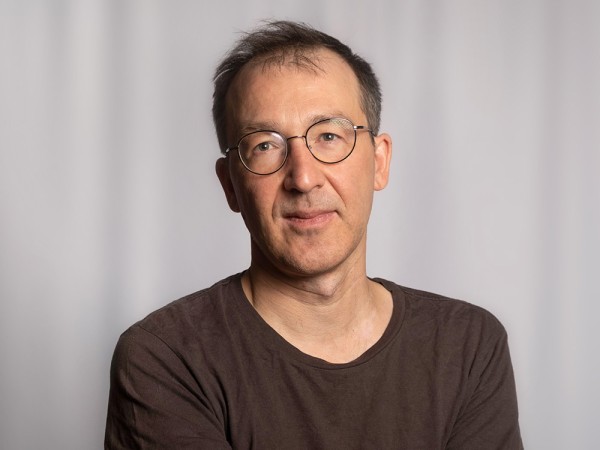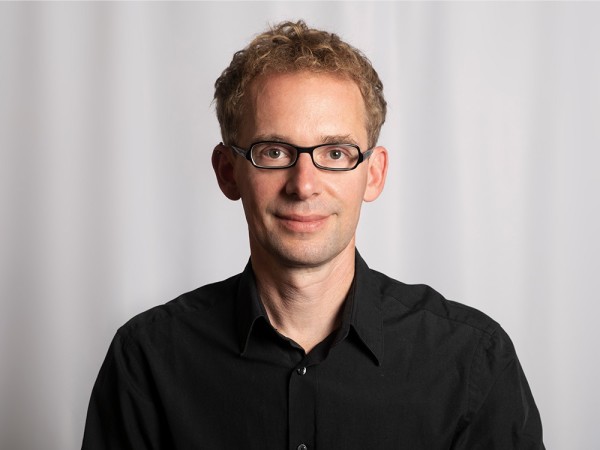The microbiological safety of the water supply is crucial to prevent the transmission of disease. Although groundwater is the main source of drinking water in many parts of the world, relatively few studies on the fate and transport of microbiological pathogens in the subsurface geological environment and their consequences for human health have been conducted.
Chemical disinfection of drinking water before and during distribution in the drinking water network is often necessary for a microbiologically safe water supply. However, it leads to the formation of disinfection byproducts (DBPs), some of which are a threat to human health. Studies show that of the currently more than 600 characterized DBPs, more than 100 have been shown to be genotoxic.
The SafeCREW project will focus on a) the hygienic quality of bank filtrate and b) chemical disinfection and the formation of DBPs. The occurrence of DBPs and the behaviour of pathogens under different conditions will be investigated in three case study locations in northern and southern Europe: the German case study includes Berlin and Hamburg, where managed aquifer recharge (MAR), i.e. deliberately recharged groundwater, and ambient groundwater are used as drinking water sources. These sites in Germany have a "near-natural drinking water supply": in both cities, the technical drinking water treatment consists of only aeration and rapid sand filtration without chemical disinfection. However, the potential formation of DBPs as a result of chemical disinfection, which may become necessary due to climate change, will be investigated at these two sites.
In Berlin, the subsurface passage in the aquifer during bank filtration is the most important hygienic barrier to ensure microbiologically safe drinking water. Microbiological measurements in the bank filtrate are challenging because even after a short residence time, the indicator organisms are often no longer detectable using conventional methods. In SafeCREW, KWB will use a field-suitable sampling method to quantify bacteria, viruses, and parasites in large-volume water samples. This allows better estimation of pathogen retention in the subsurface passage, the findings of which will lead to a reassessment of health risks using quantitative microbiological risk assessment (QMRA).
The SafeCREW project will help prepare the European water industry for the challenges of climate change and strengthen the protection of drinking water consumers in the EU. KWB will make a particularly important contribution in regard to the reassessment of microbiological risks for human health.

Schematic representation of measurement and sampling in the field. On-site measurements with flow cytometry and sampling using ultrafiltration modules





